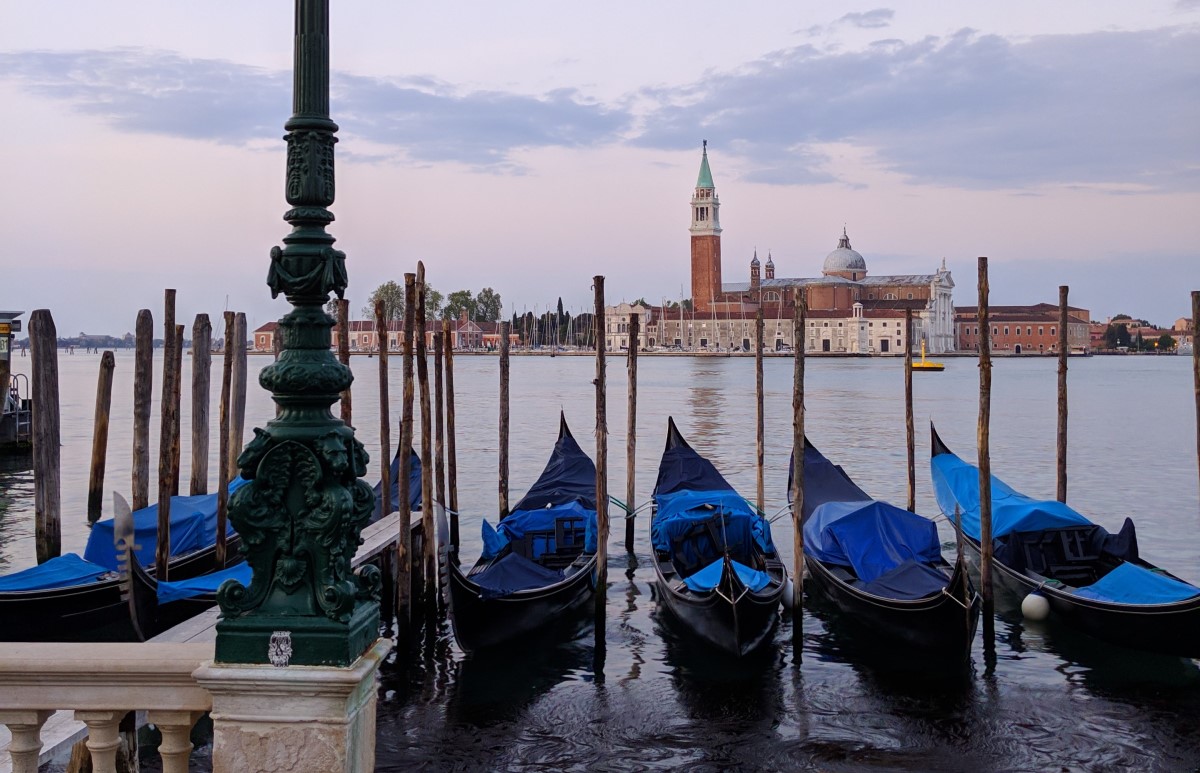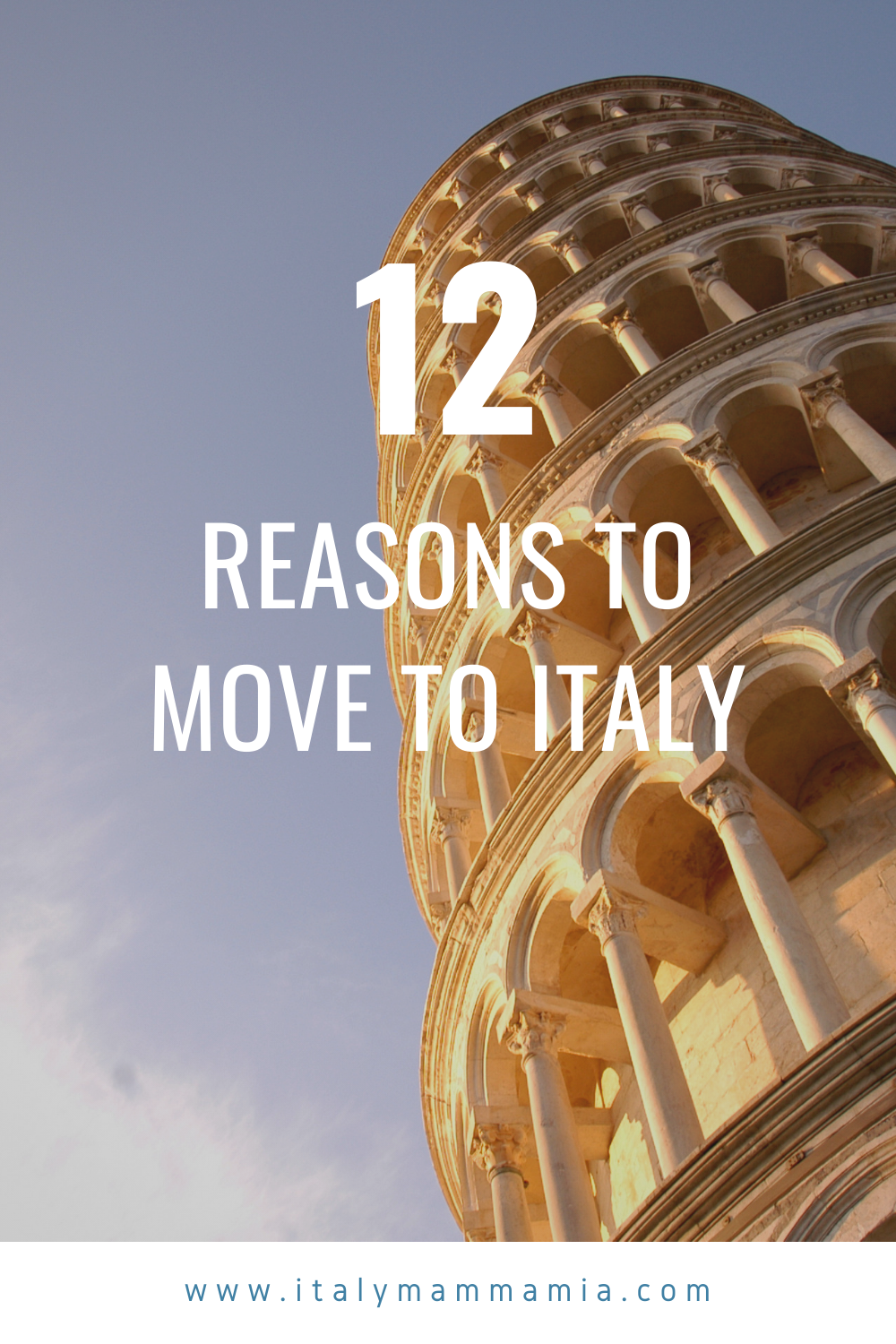- Home
- Moments in Italy
- Moving to Italy
Join A Secret Italy
You come to Italy thinking it will be a trip. You leave knowing it was a beginning
How About Moving to Italy?
Don’t miss our Moving to Italy FAQ at the end of the page—including the truth behind those much-hyped 500,000 work visas.
Have you ever entertained the idea of living somewhere completely different but felt uncertain about making a permanent move? In fact, surveys show that there are a huge number of people across the globe who would rather be living their lives in Italy
So, why not consider spending a year in Italy?
Give it a try, and you may never look back. This family from the USA did just that. They loved the experience! We've heard from so many other people who have done the same sort of thing. We even shared the inspiring story of a grandmother from California who left behind 5 kids and 10 grandchildren to spend time in Italy.
It is incredible what you can achieve... if you have the courage to follow your dreams.
It's the best thing you could ever do...
Living in a foreign country for a year can be one of the most enriching experiences you'll ever have. For starters, it helps you clear your mind and escape the cacophony of everyday life. Regardless of where you currently reside, whether it's Wichita, New York, New Delhi, or any other place, you often get caught up in local customs, societal expectations, and political dynamics.
Sometimes, amidst all the noise, you lose sight of your true self and what truly matters to you. I've been there myself. Engrossed in local matters, striving to meet the expectations of others, consumed by political affairs, and feeling the pressure to keep up with the latest material possessions.
However, spending a year in a different country allows you to regain perspective and reevaluate your priorities. It helps you realize how trivial and insignificant many of those things were. Don't just take my word for it—give it a try!
Here are twelve compelling reasons why Italy is THE choice for your escape:
 Imagine waking up to Venice every morning?
Imagine waking up to Venice every morning?- The beauty of the Italian landscape will take your breath away.
- Italian cuisine is a feast for the senses, offering an exquisite culinary experience.
- The rich history and culture of Italy will inspire and captivate you.
- Italians have a relaxed and laid-back approach to life, allowing you to embrace la dolce vita.
- You'll have the opportunity to learn and speak one of the most romantic languages in the world.
- Italy is renowned for its world-class art, architecture, and historical landmarks.
- The warm and welcoming nature of Italians will make you feel right at home.
- The vibrant local festivals and traditions will immerse you in the Italian way of life.
- Italy boasts a diverse range of regions, each with its unique charm and character.
- The Mediterranean climate offers plenty of sunshine, perfect for enjoying the outdoors.
- You'll have the chance to explore picturesque towns, enchanting villages, and stunning coastal areas.
- Italy's central location makes it an ideal base for further travel and exploration in Europe.
What Happens When You Return Home?
Upon returning home, I guarantee you won't view things in the same way anymore. You'll find yourself feeling much calmer, at peace, and capable of shrugging off narrow-minded expectations and the anger of others.
However, here's the thing—you may discover that the life you left behind no longer satisfies you. I've experienced this myself, and I've heard countless similar stories. For instance, a dear friend of mine visited Positano from the UK and never went back.
Then there's the tale of a courageous mother of three boys who decided to leave her old life behind and start anew on the charming Cilento Coast in southern Italy. She described waking up one morning to the warm sunlight streaming through her shutters, the aroma of freshly brewed espresso, and the pleasant sound of Italians conversing beneath her balcony. This became her new home—a place where she could begin a fresh chapter as a wife and mother.
In many cases, what was initially intended as a year in Italy turns into a lifelong journey. Will this be the case for you? Unless you muster up the courage to start planning, you will never know.
So start planning today, and if you need more convincing, here are 12 more reasons why Italy is a great choice for your escape.
Don't have regrets! Live your dreams. Click here for our help.
FAQ About Moving to Italy
Q: Can I claim Italian Citizenship by Descent?
A: Italy has recently tightened the rules around citizenship by descent (jure sanguinis), and if you're thinking of applying, it's more important than ever to understand what qualifies and what doesn't.
Recent Rule Changes
Until recently, many people could claim Italian citizenship through a great-grandparent or even further back. That’s no longer the case.
If you were planning to apply through a great-grandparent, unfortunately, that line no longer qualifies unless you already submitted your application before the new law came into effect in March 2025.
If your parent or grandparent was born in Italy and never gave up their citizenship before the next generation was born, you may still qualify—but the proof and residency requirements are tighter, and you can expect more bureaucracy and higher costs.
To be eligible, you’ll need:
- A parent or grandparent born in Italy.
- Proof that they were still Italian citizens when the next person in the line (your parent or you) was born.
- Solid documentation—birth, marriage, and death records—for each generation, plus certified proof that no naturalization interrupted the chain.
If your claim is through your parent, they must have lived in Italy for at least two continuous years before your birth.
Applications now go through a centralized agency in Rome, and the process is more formal and more expensive—the government fee has doubled.
Final Word
If you’ve already started the process and submitted your application before the March 2025 deadline, you’re fine, and your case will be reviewed under the old rules. If not, and your connection to Italy is more distant than a grandparent, it may now be too late under the new law.
Q: Is it difficult to move to Italy?
Q: Is it difficult to move to Italy?
A: Unless you are a citizen of an EU country, moving to Italy can present its own challenges. The biggest challenge of all is navigating the bureaucratic processes and obtaining the necessary permits and visas. It requires careful planning and research to ensure a smooth transition.
I get so many requests from people, mostly from the UK and USA, wanting to move and asking for my advice. I cannot give legal, tax, or immigration advice; however, it is really difficult if you aren't from an EU country. Many of those from the UK don't realize that they are now in the same category as those from the USA, Asia, South America, and Africa, and it is now almost impossible for them to move permanently.
The remaining options, outside of ancestry, are the following:
The quota-based work visa. Aimed mostly at seasonal farmworkers or heavy industry, spots are limited and go in minutes once applications open. Most years, it’s like trying to win a lottery.
The new digital nomad visa is a ray of hope for remote workers—but it comes with strict income requirements, lots of paperwork, and different rules depending on which consulate you apply through. Going by what I've heard, it would be easier for a camel to pass through the eye of the needle than to get one of these.
Then there’s the EU Blue Card, but you’ll need a job offer that meets high salary and qualification levels.
Intra-company transfers are another path—if your current company has an office in Italy and is willing to sponsor you.
There are also investor and startup visas for those bringing serious capital or launching innovative businesses—but again, these aren’t easy, and the bar is high.
The truth is, it takes patience, persistence, and often help from professionals to get through the process. But if your heart’s set on Italy, don’t give up. Just be prepared—it’s a winding road to get here, but worth every twist and turn.
Q: Do I need to speak Italian to live in Italy?
Q: Do I need to speak Italian to live in Italy?
A: While it's not mandatory to speak Italian, having a basic understanding of the language will greatly enhance your experience and integration into Italian society. It will make everyday tasks, such as shopping or interacting with locals, much easier and more enjoyable. If you would like to eventually apply for Italian citizenship, though, a really high level of Italian, both spoken and written, is required.
Q: How expensive is it to live in Italy?
Q: How expensive is it to live in Italy?
A: The cost of living in Italy can vary depending on the region and lifestyle choices. Generally, major cities like Rome or Milan tend to be more expensive, while smaller towns and rural areas offer a more affordable cost of living.
Generally, the south of Italy, except for touristy areas like the Amalfi Coast, is far more affordable than the north or central parts of Italy. In particular, regions like Abruzzo, Molise, and Basilicata offer great value.
Don't be caught out by all those 1 euro house deals you read about, though; those always come with a lot of problems. Our guide to the 1 Euro deals explains what you need to be aware of.
It's important to budget and consider factors such as accommodation, transportation, and healthcare expenses.
Q: Can I find work in Italy?
Q: Can I find work in Italy?
A: Finding employment in Italy can be challenging, especially for non-EU citizens due to strict work permit regulations. It's advisable to secure a job offer or explore opportunities before relocating. English teaching, freelance work, or starting your own business are some avenues to consider.
Q: How is the healthcare system in Italy?
Q: How is the healthcare system in Italy?
A: Italy has a comprehensive healthcare system, providing universal coverage to residents. EU citizens can access healthcare through the European Health Insurance Card (EHIC), while non-EU citizens may need private health insurance or pay for services out-of-pocket. Health care levels do vary a lot. In some parts of southern Italy, like the Calabria region, it can be very poor, while in northern regions like the Veneto, it is excellent.
Q: Can I bring my pets to Italy?
Q: Can I bring my pets to Italy?
A: Yes, but you need to comply with Italy's pet import regulations, including microchipping, vaccinations, and documentation.
Q: What about those offers of money to move to certain towns in Italy?
Q: What about those offers of money to move to certain towns in Italy?
A: Most of these offers, like the offer of 32,000 euros if you move to Tuscany, come with loads of small print and apply only to EU citizens. Like the 1 Euro house scam, they are not worth bothering with.
Q: Are 500,000 work visas available between 2026 and 2028?
Q: Are 500,000 work visas available between 2026 and 2028?
A: Yes, Italy’s government has announced up to half a million work visas over that period. Sounds generous, doesn’t it? But here's the truth they don’t shout about…
These visas fall under the Decreto Flussi (Flow Decree) system—a rigid, bureaucratic nightmare designed mainly for seasonal and low-skilled labor. Think agricultural work, construction, caregiving, and similar sectors. Most are reserved for workers from a pre-approved list of countries, and you’ll need a signed contract from an Italian employer before you even apply. Good luck finding one willing to navigate the mountain of red tape.
Even if you're highly qualified or a freelancer hoping to build a life here, this isn’t for you. These aren’t visas for people wanting to start a new life in Italy’s hill towns or open a little business in Umbria. They’re for sectors desperate for short-term workers—and they fill up within minutes.
So yes, 500,000 looks big on paper. But in reality? It’s next to useless for most people dreaming of moving to Italy.
Q: So how do you apply for one of these 500,000 work visas?
Q: So how do you apply for one of these 500,000 work visas?
A: Brace yourself—it's complicated, frustrating, and stacked against most hopefuls.
Step 1: Have a job offer before you apply
This is the first wall most people hit. You can’t just apply and then find work. You need an Italian employer who is willing to
- Offer you a contract (for seasonal or non-seasonal work)
- Pre-register with the Italian immigration system
- Fill out detailed paperwork on your behalf
And this employer must submit the application on your behalf. You can’t apply alone.
Step 2: Wait for the Decreto Flussi window to open
The Italian government only accepts applications during a short window each year — typically once in spring and again in autumn. It’s called “click day,” and yes, that’s as chaotic as it sounds.
Step 3: Get through the red tape
- Tens of thousands of applications flood the system within minutes
- Most are rejected simply because they weren’t fast enough
- It’s not first come, first served—it’s first submitted and processed, and the system often crashes
If (and that’s a big if) your application is accepted, here’s what follows:
- You’ll receive a nulla osta (authorization to work)
- You then book an appointment at the Italian consulate in your country
- You submit documents: passport, contract, proof of accommodation, criminal background check, and more
- If approved, you get a visa stamped into your passport
- Once in Italy, you must apply for a permesso di soggiorno (residency permit) within 8 days—more paperwork, more waiting
Q: What is the two-year rule?
Q: What is the two-year rule?
A: As of March 28, 2025, if your claim to Italian citizenship is through your parent, and they reacquired Italian citizenship (for example, through naturalization or reinstatement), then they must have lived in Italy for at least two continuous years before your birth for you to inherit citizenship.
When does it apply?
This rule only applies if:
- Your parent was born abroad, and
- They reclaimed or held Italian citizenship not by birth, but through a previous family connection (e.g., through their parent), and
- You were born after they became Italian again, but not in Italy.
In short:
If your parent wasn't born in Italy but later became an Italian citizen, they must have actually lived in Italy for 2 years before you were born for you to inherit their citizenship.🛑
When it does not apply:
- If your parent was born in Italy, the 2-year rule does not apply.
- If your parent was already an Italian citizen at your birth and living in Italy, you're in the clear.
- If you are applying through a grandparent and your parent never lost citizenship, the 2-year rule usually doesn’t apply, but stricter documentation is now required.
This rule is aimed at closing the "automatic citizenship by descent" loophole for people whose parents became Italian on paper but never actually lived in Italy. Italy now wants a stronger connection to the country—not just ancestry, but actual residency and ties.
Please Book with Us... Maria here, if you enjoy my site I'd love your support.
Simply book your next trip anywhere (not only to Italy) via the link below or with any of the hotel links on the website.
You'll get the best deal available and the income I receive helps me to remain independent and to keep bringing you more of beautiful Italy.
More Travel Tips:
- Book your tickets to museums and other attractions in advance on Tiqets.com
- Book your accommodation. Booking.com and Agoda help you to book accommodation in advance
- Book your excursions. Wherever you go, make the most of your time! Excursions with professional guides will help you do this - choose a location and the best option for yourself on Viator or Getyourguide
- Book your car. At least a month before is best. Use Discover Car Hire.
- Cash Back on Flights: Great deals & money back with WayAway
- Get peace of mind when traveling. Get insured with VisitorsCoverage.com
- Home
- Moments in Italy
- Moving to Italy






















New! Comments
Have your say about what you just read! Leave me a comment in the box below.